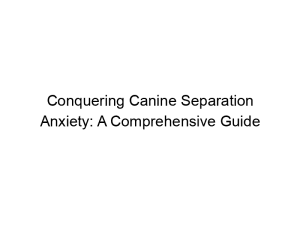Have you ever watched your dog furiously excavating a hole in your perfectly manicured lawn, leaving you bewildered and frustrated? This seemingly destructive behavior is actually rooted in a fascinating array of deeply ingrained instincts. Why Do Dogs Love to Dig? Understanding This Natural Instinct is more than just a question; it’s a journey into the canine mind and their evolutionary history. In this comprehensive guide, we’ll explore the various reasons behind this behavior, from instinctual needs to learned behaviors, providing you with a deeper understanding of your furry friend. We’ll delve into the different types of digging, how to manage unwanted digging, and ultimately, appreciate the natural roots of this common canine activity.
Digging is a fundamental survival skill for many canine ancestors, particularly those who hunt prey that burrows underground, like rabbits, rodents, and
prairie dogs. This innate drive is deeply ingrained in their DNA. The thrill of the chase, the anticipation of finding a hidden prize, it all contributes to the powerful urge to dig. Even domesticated dogs retain this primal instinct.
Marking Territory
Canines, both wild and domestic, use scent marking to establish and defend their territory. Digging and burying items (toys, bones, waste) is a form of scent marking. By digging, they’re not only creating a physical boundary but also leaving their olfactory signature in the ground. This behavior is more prevalent in unaltered dogs who have a stronger drive to establish dominance.
Temperature Regulation
Dogs don’t sweat like humans. Digging allows them to create cooler spaces to escape the heat, particularly in warmer climates. A cool burrow can provide relief from the sun’s intensity, serving as a natural air conditioner. This is why you might observe increased digging behavior during hot summer months.
Environmental Factors Influencing Canine Digging
Boredom and Lack of Stimulation
A bored dog is a digging dog. Without enough mental and physical stimulation, dogs may turn to digging as a means of occupying their time and energy. This is why providing adequate exercise, enrichment activities like puzzle toys, and training are crucial for managing this behavior.
Anxiety and Stress
Dogs experiencing anxiety or stress may engage in compulsive digging as a way to cope with their emotional distress. Underlying anxieties can manifest in various ways, and compulsive digging is just one potential symptom. Addressing the root cause of the anxiety is key to managing this behavior.
Understanding Different Types of Dog Digging
Escape Digging
Some dogs, especially those kept in fenced areas, dig to escape their confinement. This can be a sign of underlying frustration, boredom, or a desire for exploration. Reinforcing the fence and providing more opportunities for outdoor exercise can help alleviate this problem.
Play Digging
This type of digging is often playful and less destructive. Dogs might dig simply for the enjoyment of the activity, like a form of exploration or amusement. This is often seen in puppies and younger dogs.
Addressing Unwanted Digging Behavior
Providing Adequate Enrichment
Enrichment activities, such as puzzle feeders, interactive toys, and training sessions, can help redirect a dog’s energy away from digging. Mental stimulation can be just as important as physical exercise in keeping a dog happy and engaged.
Modifying the Environment
Modifying the environment can also help reduce digging behavior. This might include providing alternative digging areas (a designated sandbox), reinforcing fences, or using deterrents such as chicken wire or motion-activated sprinklers.
Training and Positive Reinforcement
Positive reinforcement training can be very effective in discouraging unwanted digging behavior. Rewarding desired behaviors, such as remaining in designated areas, can help redirect the dog’s focus.
Digging and Your Dog’s Breed
Breed Predisposition
Certain breeds, such as Terriers and Huskies, have a stronger predisposition towards digging due to their ancestral roles as working dogs who often dug for prey or shelter. Understanding your dog’s breed characteristics can provide insight into their behavior.
How to Choose the Right Digging Deterrent
Repellents and Deterrents
Various commercial products, such as repellents and physical barriers, can be used to deter digging. It’s important to research these products to understand their effectiveness and any potential safety concerns for your dog.
The Role of Scent in Canine Digging
Scent Marking and Burial
Dogs bury items, partly due to scent marking, retaining and concealing important scents within their environment. Understanding this aspect of their behavior can help manage digging.
Digging as a Form of Self-Soothing
Coping Mechanisms for Anxiety
Digging can be a self-soothing behavior for anxious dogs. Identifying and addressing the underlying anxiety is crucial for managing this behavior effectively.
Preventing Digging Before It Starts
Early Socialization and Training
Early socialization and consistent training are key to shaping a dog’s behavior and preventing problematic digging habits from forming.
The Connection Between Physical and Mental Health
The Impact of Digging on Wellbeing
Excessive digging can be a sign of underlying physical or mental health problems. Regular veterinary checkups are essential to rule out any medical issues.
Digging and Your Dog’s Age
Puppy vs. Adult Digging
Puppy digging is often explorative, while adult digging may be driven by more complex factors, such as anxiety or boredom. Addressing the root causes is crucial.
Considering Alternative Digging Areas
Creating a Designated Digging Zone
Creating a safe and designated digging zone can channel your dog’s natural instincts in a positive and constructive way. This reduces the chances of unwanted digging in other areas.
Frequently Asked Questions
What are the most common reasons why dogs dig?
Dogs dig for a variety of reasons, including instinctual hunting behaviors (burrowing prey), marking territory through scent, temperature regulation, boredom, anxiety, and stress. Some breeds, like Terriers, are naturally more prone to digging.
Is digging always a problem behavior?
Not necessarily. Some digging is natural and even playful. However, excessive or destructive digging can be problematic. It’s important to differentiate between harmless exploration and problematic behavior.
How can I stop my dog from digging in my garden?
Several strategies can deter digging, including providing adequate exercise and enrichment, creating a designated digging zone, using deterrents like motion-activated sprinklers or repellents, and training your dog using positive reinforcement.
Final Thoughts
Understanding the reasons behind why dogs love to dig is crucial for responsible pet ownership. While digging can be destructive, it’s essential to recognize that it often stems from natural instincts or unmet needs. By providing your dog with adequate exercise, mental stimulation, and a safe environment, you can effectively manage unwanted digging and appreciate the inherent instincts that drive this behavior. Remember that patience and understanding are key. Through a combination of training, environmental modification, and addressing any underlying anxieties, you can successfully navigate this common canine behavior and maintain a harmonious relationship with your furry companion. Remember to consult with a veterinarian or a certified dog trainer if you are struggling to manage your dog’s digging. They can offer personalized advice and support based on your dog’s specific needs.




